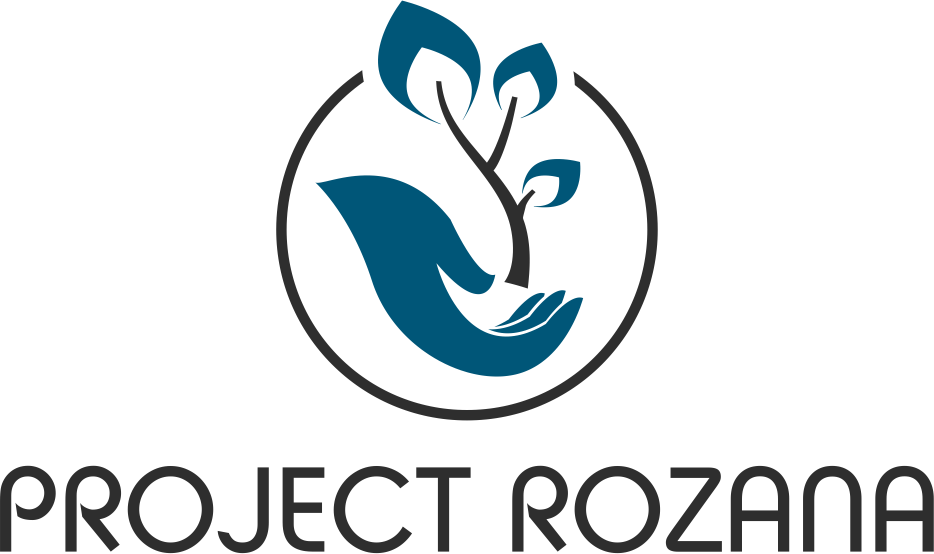FRESH AIR
Jamal Rifi, anti-normalisation and the campaign to prevent Israelis being treated as “human”
June 13, 2019 | Judy Maynard

The widely-reported attacks on Lebanese-Australian Doctor Jamal Rifi’s involvement in an apolitical charity that helps critically-ill Palestinian children and improves the training of Palestinian medical staff have exposed the ugliness underlying the Palestinian-led “anti-normalisation” campaign against Israel. Lea Azzi, a journalist with the Hezbollah-linked Lebanese newspaper, Al Akhbar, spelt out the normally unspeakable when she told the ABC that the problem with “medical and humanitarian” Project Rozana was that it was “normalising the relationship with Israel. So the enemy becomes a human.”
 Project Rozana, founded by Melbourne Jewish businessman, Ron Finkel, and on which the Lebanese-born Australian Dr Rifi serves as a board member, is an international fund-raising initiative to provide sick children from the West Bank and Gaza with transport to and treatment in Israeli hospitals, to train Palestinian medical professionals, and to improve healthcare in Palestinian communities. It is supported by the Israeli government and endorsed by the Palestinian Authority (PA), represented here by the Head of the Palestinian Delegation to Australia, Izzat Abdulhadi.
Project Rozana, founded by Melbourne Jewish businessman, Ron Finkel, and on which the Lebanese-born Australian Dr Rifi serves as a board member, is an international fund-raising initiative to provide sick children from the West Bank and Gaza with transport to and treatment in Israeli hospitals, to train Palestinian medical professionals, and to improve healthcare in Palestinian communities. It is supported by the Israeli government and endorsed by the Palestinian Authority (PA), represented here by the Head of the Palestinian Delegation to Australia, Izzat Abdulhadi.
Yet to people like Azzi, it is wrong, even shameful, because it involves working with the Israeli health care system and one must never treat Israelis as “human”, only as enemies to be fought.
The normalisation “slurs” against Dr Rifi are designed to hurt both him, by shaming him as a “Zionist collaborator”, and the Project Rozana initiative, by intimidating Palestinians to prevent them from availing themselves of the benefits on offer. As always, whenever anti-normalisation is pursued, it is the Palestinians themselves who suffer the most.
As AIJAC noted in a blog post last month, Palestinian students were recently denied the opportunity to gain valuable employment with leading Palestinian software companies, thanks to the anti-normalisation activism of protesters on the campus of Bir Zeit University in the West Bank, who objected to the fact that these wholly Palestinian companies did some business with Israeli hi-tech companies, and so barred them from the university. Meanwhile, several hundred Palestinian workers lost their well-paid jobs when SodaStream moved its facilities from its West Bank factory to the Negev, after years of targeting by activists.
Anti-normalisation aims at preventing any engagement between ordinary Palestinians and Israelis, and flies in the face of grassroots and other peace-building efforts. In all manner of contexts – people-to-people initiatives, business enterprises, university campuses – dialogue and ordinary relations are anathema because the aim is to sever any connection or understanding between the two sides.
Anti-normalisation claims moral superiority while attempting to annihilate both Israel and Israelis from public discourse. As Azzi explained so bluntly, refusing to engage with Israelis in any context, even where the welfare of Palestinians is concerned, is intended to dehumanise the enemy.
Yet as the UN Special Adviser on Prevention of Genocide, Adama Dieng, noted in 2014, summarising the consensus of experts on the subject, such dehumanisation is the beginning of the process of genocide.
Anti-normalisation supporters try to disguise this reality with the bogus justification that any normal relations between Israelis or Palestinians would represent a false equivalence between the rights and aspirations of the two sides. Acknowledgement of Israeli collective “guilt”, and agreement that it is the Israelis that are oppressors and Palestinians their innocent victims, are pre-conditions to any interaction. In other words, Israelis cannot be treated as “human” until they fully support the Palestinian narrative and all Palestinian claims deriving from it. Hence Azzi trots out the usual dissemblance: “The problem is that the founder of Project Rozana is — not because he is a Jew, we don’t have any problem with Jews — but this person is a Zionist,” she said.
Furthermore, there is a direct link between the dehumanising Palestinian anti-normalisation campaign and its Arab backers, such as the Hezbollah-linked Azzi, and the international Boycott, Divestment and Sanctions (BDS) movement against Israel. The BDS movement claims its legitimacy to boycott Israel, alone of all the world’s countries, from a “Palestinian Civil Society Call for BDS” issued in 2005. Yet many of the same Palestinian “civil society” organisations that made that call in 2005 have long been involved in enforcing the dehumanising anti-normalisation campaign, which has been going on for decades, and BDS can largely be seen as an extension of anti-normalisation.
And while the BDS movement officially claims that, unlike anti-normalisation campaigners, they only boycott Israeli institutions, not individuals, in practice they act almost identically, seeking to block any contact or normal human interaction with anyone or anything identified as Israeli, or, as Azzi stated, “Zionist.”
Moreover, as always there is the hypocrisy. This month, the PA decided to stop paying for the successful cancer treatment of a 7-year-old Palestinian child, Majed Muhammad Majed Ah-Sha’er, in Tel Aviv’s Ichilov Hospital, in order to use those funds for its “pay-for-slay” scheme to remunerate terrorists. Palestinian leaders, however, do not subject themselves to the same rules. The most recent example, Jibril Rajoub, Chairman of the PLO’s Supreme Council for Youth and Sport Affairs, was admitted for treatment to that same Ichilov Hospital in May this year.
Jamal Rifi says of his involvement with Project Rozana, “Our single-minded desire is to build bridges to better understanding between Israelis and Palestinians through health, the area of civil society to which I have dedicated my professional life.”
But “building bridges” is exactly what anti-normalistion activists and BDS supporters oppose, so it is no wonder they seek to demonise such efforts. Building bridges and establishing joint projects, even to help Palestinian children, is not helpful if your goal is to dehumanise the other side, which as Azzi confessed, is exactly what they are seeking to do.
Better Palestinian children suffer than take the risk of anyone coming to see Israelis as “human”.
Tags: BDS, Gaza, Hezbollah, Israel, Jamal Rifi, Lea Azzi, Palestinians, anti-normalisation
RELATED ARTICLES

Enormous hope that Iran is being liberated: Colin Rubenstein on Sky News

He survived Bondi. Now he’s fighting back: Arsen Ostrovsky addresses AIPAC conference





















